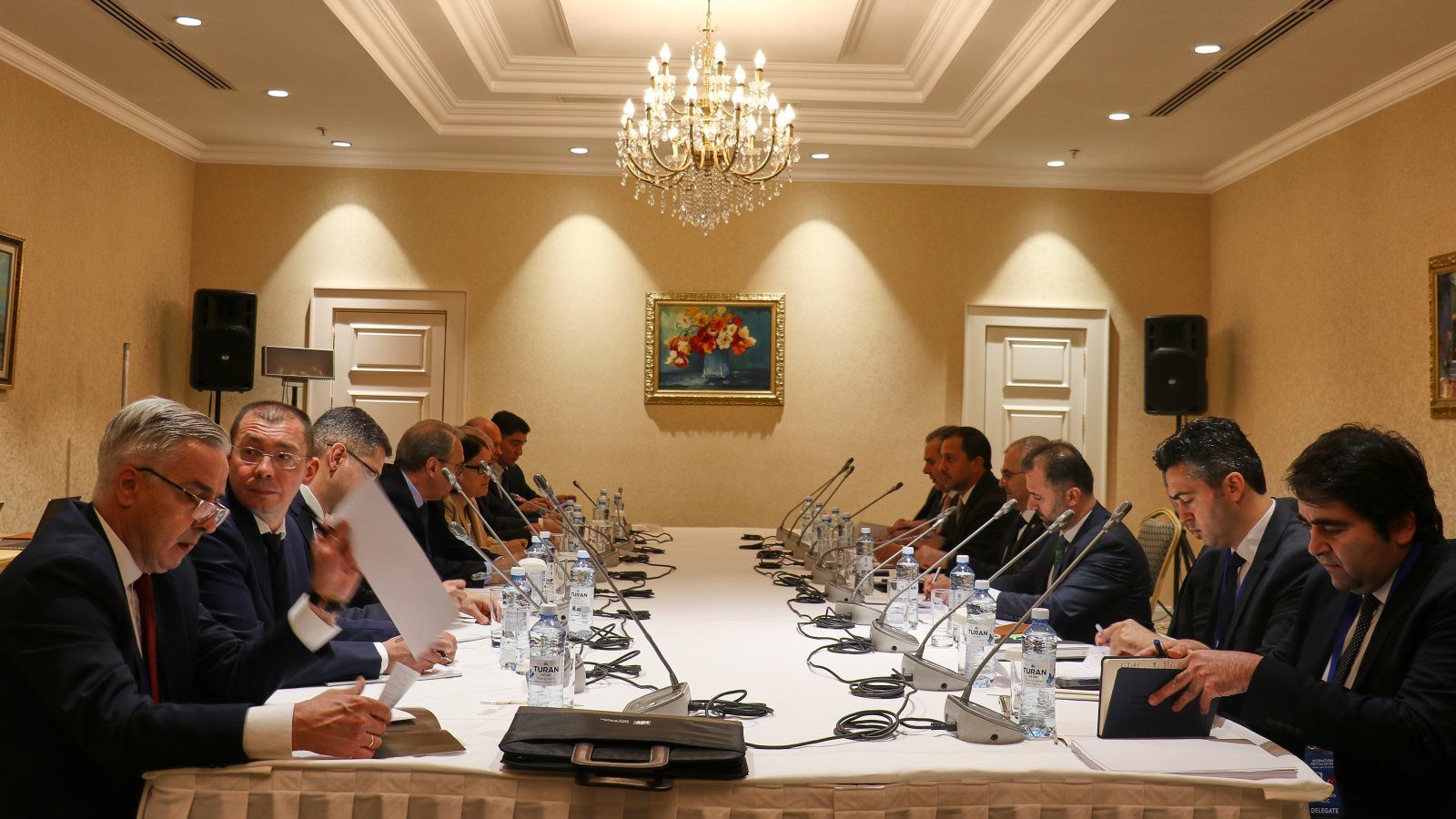The 20th round of the Astana talks on Syria concluded on Wednesday after two days of discussions involving representatives from the “guarantor countries,” as well as delegations from the regime and the opposition.
The Ministry of Foreign Affairs of Kazakhstan released the final communiqué of the meeting, suggesting that it should be the last one in this particular format.
Kanat Tomish, the Deputy Foreign Minister of Kazakhstan, expressed, “Given the recent positive developments in Syria, we propose that this meeting marks the conclusion of the Astana process.”
However, the Russian Foreign Ministry stated that the decision to conclude the current version of Astana had already been made. This statement was made by Russian Deputy Foreign Minister Mikhail Bogdanov in an interview with the TASS news agency.
According to Alexander Lavrentyev, Putin’s representative to Syria, these talks are expected to relocate to a new venue and follow a new framework, the specifics of which are yet to be determined.
New speech at Astana 20
The concluding statement of Astana 20 emphasized the continuation of talks regarding the normalization of relations between Turkey and the Assad regime.
The statement underscored “the significance of advancing this operation based on goodwill and good-neighbourliness to counter-terrorism.”
“Sustaining active efforts to mend relations between Turkey and Syria is of utmost importance.”
This marks the first occasion where the final communiqué of the Astana talks addresses the relationship between Turkey and the regime.
The meeting serves as part of the “dialogue-building” process between Turkey and the regime, aimed at exploring the potential for normalizing relations between the two sides.
During the quadripartite meeting, the proposed road map put forth by Russia was discussed as a preliminary step towards restoring relations between Turkey and the regime.
According to the final statement of Astana 20, the quadripartite consultations were deemed constructive, focusing on the progress made in formulating the roadmap for the restoration of relations between Turkey and Syria.
He also emphasized “the significance of coordinating with the defence ministries and intelligence agencies of Syria, Russia, Iran, and Turkey, and continuing efforts in this regard.”
Recently, discussions have emerged regarding a roadmap presented by Russia as part of the normalization process between Turkey and the regime.
According to the semi-official Al-Watan newspaper, the roadmap includes a defined “timeline” for the withdrawal of Turkish forces from Syria.
“Informed sources” cited by the newspaper indicated that the Russian roadmap is likely to incorporate “a clear indication to schedule the Turkish withdrawal from Syrian territory.”
This action reflects Moscow’s aspiration to advance the development of relations between Damascus and Ankara.
However, Russia has not officially addressed this step, which the regime insists upon as a precondition for normalization with Turkey, while the latter currently rejects it.
Final Statement
The final statement of “Astana 20” encompassed key topics that were raised in previous meetings, including “national sovereignty,” “counterterrorism,” “repatriation of refugees,” and the “political process.”
The statement emphasized the importance of establishing favourable conditions for the safe, voluntary, and dignified return of Syrians, with the active involvement of UNHCR.
Furthermore, it underscored the need to invigorate the political process and ensure the unrestricted delivery of humanitarian assistance across all of Syria.
The statement strongly condemned the activities of terrorist organizations and groups in Syria, emphasizing the necessity of implementing all existing agreements in northern Syria.
It also denounced the continuous Israeli aggressions on Syrian territory, deeming them a violation of international law, Syria’s sovereignty, and territorial integrity.
Participants of Astana 20 expressed their commitment to advancing the political process as a means to achieve a resolution in Syria. They rejected any “separatist plans” and the pursuit of “autonomy” in eastern Syria.
This article was translated and edited by The Syrian Observer. The Syrian Observer has not verified the content of this story. Responsibility for the information and views set out in this article lies entirely with the author.


